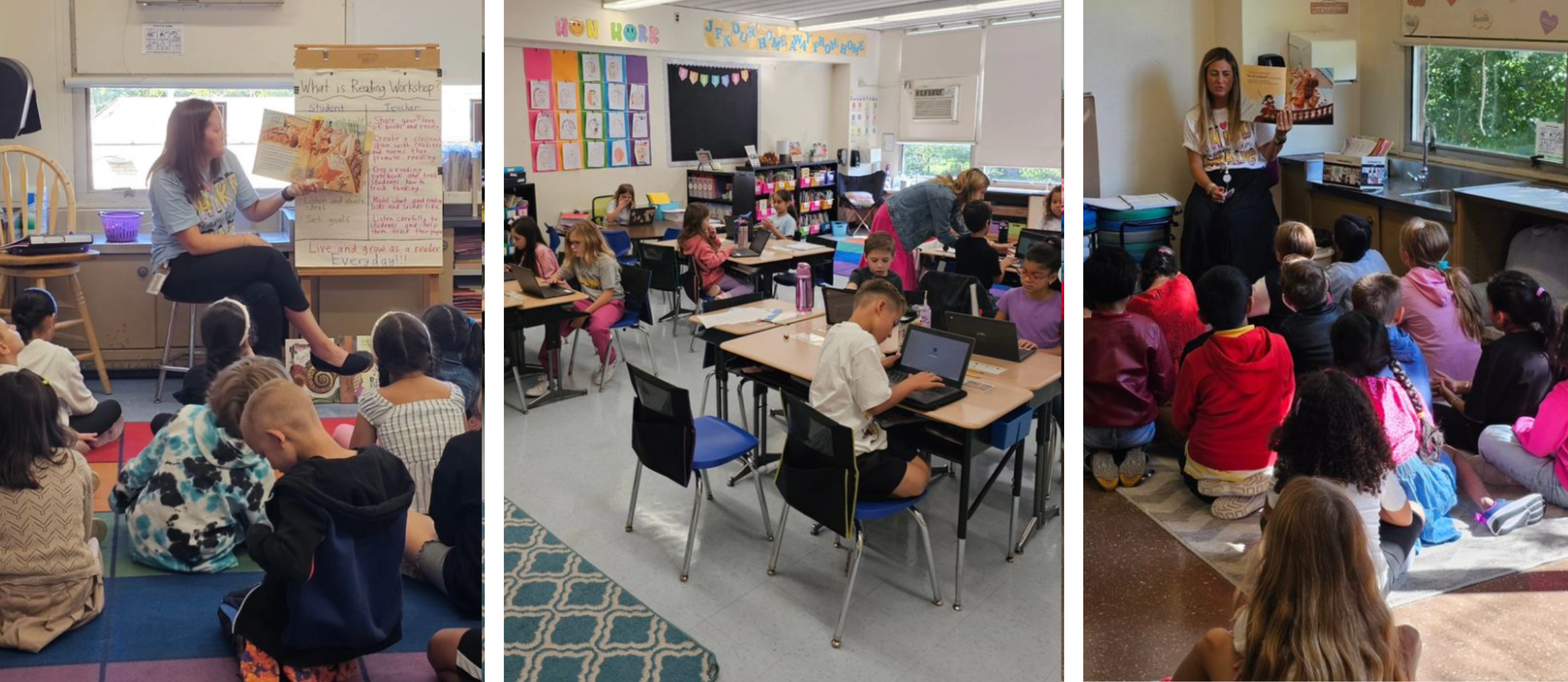Comprehending the Value of Colleges in Kid Growth and Neighborhood Growth
Institutions' engagement with local neighborhoods with service-learning campaigns strengthens the bond in between family members and academic establishments. This cooperative partnership emphasizes the importance of colleges in nurturing energetic citizenship and lifelong knowing practices.
Academic Accomplishment
Academic achievement acts as a keystone of child growth, supplying the foundation whereupon future discovering and success are built. Colleges play an essential function in cultivating this scholastic development, providing structured environments where children can get crucial understanding and cognitive abilities. Standardized educational program make certain that students gain efficiency in core subjects such as maths, science, and language arts, which are vital for both college and specialist possibilities.
In addition to imparting essential academic skills, institutions additionally cultivate crucial reasoning, problem-solving capacities, and intellectual curiosity. These cognitive proficiencies are essential for navigating intricate real-world circumstances and adjusting to the ever-evolving demands of the contemporary work environment. Teachers, as facilitators of discovering, employ diverse instructional approaches to deal with different understanding styles, therefore making the most of private trainee potential.
Additionally, scholastic success is closely connected to self-confidence and inspiration. Youngsters who experience scholastic success are most likely to develop a positive self-concept and a long-lasting interest for understanding. Schools likewise use various sources, such as collections and modern technology, which better enhance the educational experience and prepare students for a technologically advanced culture.
Social Ability Development
Beyond academic accomplishment, the role of schools in social skill development is vital. Schools serve as a primary venue for kids to learn and practice important social skills such as communication, teamwork, and dispute resolution. In the organized setting of a class, trainees interact with peers, educators, and various other institution personnel, supplying many possibilities to develop these vital abilities.
Reliable social skill advancement in schools is promoted via group activities, joint jobs, and extracurricular programs. These interactions aid pupils understand social standards, develop empathy, and cultivate a sense of area. As an example, team tasks teach pupils exactly how to interact in the direction of a typical objective, listen to various viewpoints, and navigate disagreements constructively.

The growing of social skills throughout college years lays a foundation for future personal and expert connections. Save Temecula Schools. As pupils mature, the ability to properly interact and team up comes to be progressively crucial, emphasizing the college's crucial duty in all natural youngster development
Direct Exposure to Diversity
Direct exposure to variety in schools is fundamental to promoting a comprehensive frame of mind and widening students' point of views. Schools function as a microcosm of the wider society, and encountering diverse cultures, languages, and socioeconomic backgrounds within this environment outfits students with important skills for navigating an increasingly globalized world. This exposure encourages empathy, reduces prejudices, and promotes mutual regard amongst peers.
Research study indicates that trainees that communicate with peers from diverse backgrounds exhibit better analytic skills and creative thinking. This understanding of diversity prepares trainees for future offices that value modern skills - Save Temecula Schools.

Area Engagement
The benefits of diverse classrooms expand beyond the school walls, fostering a strong sense of community interaction among students. By engaging with peers from various cultural, socioeconomic, and ethnic backgrounds, trainees obtain a broader perspective and a this hyperlink gratitude for variety. This exposure image source encourages them to end up being energetic residents that are prepared to contribute positively to their communities.
Colleges that stress neighborhood interaction commonly integrate service-learning jobs, which allow students to resolve real-world troubles while applying academic abilities. These jobs not only boost pupils' understanding of their coursework however also impart a feeling of obligation and empathy. Additionally, collaborations between schools and neighborhood companies provide students with opportunities to take part in neighborhood occasions, better strengthening their role as aggressive neighborhood members.
Additionally, adult and community participation in schools reinforces the bond in between schools and the neighborhoods they offer. When schools open their doors to community occasions, workshops, and volunteer opportunities, they produce a joint setting that profits all stakeholders. This shared support system guarantees that pupils receive alternative growth, preparing them to come to be all-round people who add and value to their neighborhoods. Through these efforts, colleges play a pivotal role in supporting area engagement and fostering societal development.
Lifelong Learning Habits
Developing lifelong understanding practices is crucial for a child's continuous growth and adaptability in an ever-changing world. Schools play a pivotal role in instilling these practices by developing a setting that cultivates inquisitiveness, essential reasoning, and a love for understanding. Through extracurricular tasks and diverse curricula, teachers encourage students to check out different subjects, assess info seriously, and apply their learning to real-world circumstances.

Moreover, institutions give an organized environment where youngsters can establish self-control and time monitoring skills, both of which are vital for constant knowing. By highlighting the relevance of establishing objectives, reviewing progress, and adapting techniques, universities prepare students to browse the complexities of adult life, ensuring they stay long-lasting learners and contributors to culture.
Verdict
In final thought, schools are crucial in fostering youngster development and community development by offering environments favorable to academic success, social ability advancement, and exposure to diversity. Eventually, colleges cultivate long-lasting knowing habits, outfitting people with the needed understanding and skills to Our site contribute positively to society.
In the structured environment of a class, pupils engage with peers, instructors, and other institution team, providing various possibilities to create these important capabilities.
In significance, exposure to diversity within institutions not only improves individual students but also enhances the social fabric of the area as a whole.
The benefits of varied classrooms extend beyond the college walls, cultivating a strong feeling of area involvement amongst students.Colleges that highlight neighborhood engagement typically incorporate service-learning tasks, which allow students to attend to real-world problems while applying scholastic skills. Partnerships in between colleges and local companies offer students with opportunities to participate in neighborhood occasions, additionally solidifying their duty as aggressive area participants.